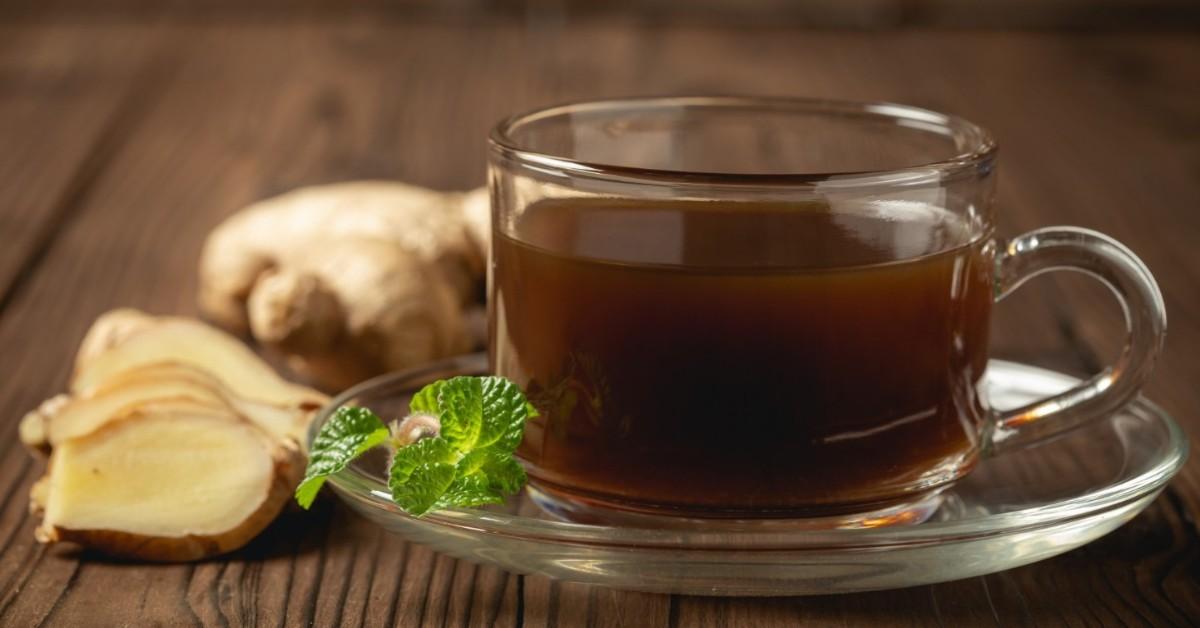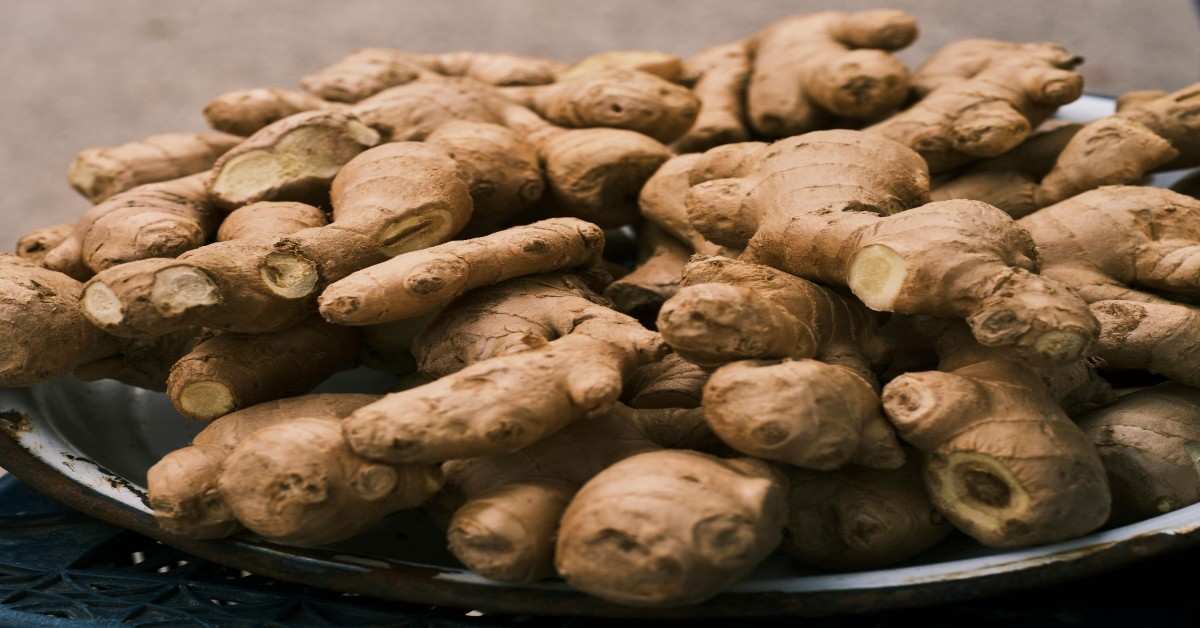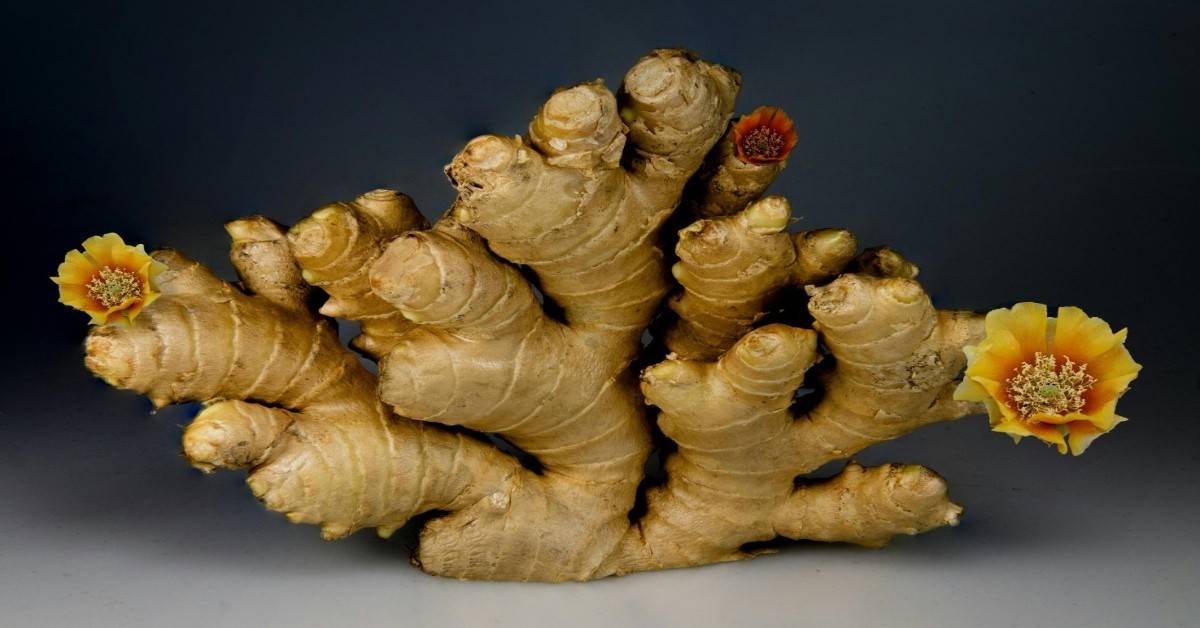Winter brings with it a chill in the air, shorter days, and an undeniable craving for hearty, warming meals. As the temperatures drop, our bodies naturally gravitate toward foods that not only comfort us but also provide essential nutrients to keep us healthy. Enter ginger—a humble root with a fiery kick that has been a staple in kitchens and medicine cabinets for centuries.
This small but mighty ingredient can elevate your winter diet, offering a perfect blend of flavor, warmth, and health benefits.
Click Here: What Hidden Winter Diet Superfoods Should You Try This Season?
What is Ginger ?
Ginger is a flowering plant whose underground stem, commonly referred to as a “root,” is widely used as a spice and medicinal herb. Known scientifically as Zingiber officinale, ginger is part of the Zingiberaceae family, which also includes turmeric and cardamom.
Native to Southeast Asia, ginger has been cultivated and valued for centuries due to its unique flavor and health-boosting properties. It has a slightly sweet, spicy, and peppery taste with a warm and earthy aroma, making it a versatile ingredient in both savory and sweet dishes. Beyond its culinary uses, ginger is renowned for its medicinal benefits, such as aiding digestion, reducing inflammation, and boosting the immune system.
The plant itself has reed-like stems and green leaves, with clusters of yellow-green flowers. However, it’s the rhizome—the thick, knotted root—that is the prized part of the plant. Ginger can be used fresh, dried, powdered, pickled, or as an essential oil, offering numerous ways to enjoy its distinct qualities in your daily life.
The Nutritional Powerhouse: What Makes Ginger Special?
Ginger’s impressive nutritional profile is a key reason it stands out as a winter essential. It’s rich in bioactive compounds like gingerol, shogaol, and paradol, which are responsible for its anti-inflammatory, antioxidant, and medicinal properties. Additionally, ginger contains:
- Vitamins: B6, C, and small amounts of vitamin E.
- Minerals: Magnesium, potassium, and manganese.
- Dietary Fiber: Aiding digestion and improving gut health.
This nutrient-dense root is a powerful ally in combating winter’s challenges, from seasonal colds to joint stiffness.
How Ginger Supports Your Winter Diet
- Boosts Immunity Winter is synonymous with cold and flu season, making immune support a top priority. Ginger enhances the body’s immune response by promoting better circulation and stimulating the production of white blood cells. Its antiviral and antibacterial properties help fend off infections, keeping you healthy throughout the colder months.
- Keeps You Warm from the Inside Ginger’s natural warming effect makes it an ideal ingredient for winter recipes. It increases circulation and raises your body temperature, providing a cozy, comforting sensation with every bite or sip.
- Eases Digestive Woes Rich, indulgent winter meals can sometimes lead to digestive discomfort. Ginger aids in digestion by stimulating the production of digestive enzymes, reducing bloating, and alleviating nausea. Whether it’s post-holiday indulgence or a heavy stew, ginger can help your stomach handle it with ease.
- Combats Inflammation Cold weather can exacerbate joint pain and stiffness, especially for those with arthritis. Ginger’s anti-inflammatory properties help reduce pain and swelling, making it a natural remedy for winter aches.
- Improves Circulation Winter can lead to sluggish circulation, resulting in cold hands and feet. Ginger promotes blood flow, ensuring your extremities stay warm and improving overall cardiovascular health.
- Supports Weight Management If your winter diet goals include maintaining a healthy weight, ginger can be an asset. It helps boost metabolism, suppress appetite, and improve fat breakdown, making it easier to stay on track.

Creative Ways to Add Ginger to Your Winter Recipes
1. Soups and Stews Ginger adds depth and warmth to hearty winter soups and stews. Try grating fresh ginger into chicken noodle soup, lentil stew, or butternut squash bisque for an invigorating twist.
2. Hot Beverages Ginger tea is a classic winter drink that soothes the throat and warms the soul. You can also experiment with ginger-infused hot chocolate or mulled cider for a festive treat.
3. Baked Goods From gingerbread cookies to spiced muffins, ginger is a star ingredient in winter baking. Its spicy-sweet flavor complements holiday desserts and adds a festive touch to your table.
4. Marinades and Glazes Add a zing to your winter roasts by incorporating ginger into marinades or glazes. Ginger pairs exceptionally well with honey, soy sauce, and citrus for a bold flavor profile.
5. Stir-Fries and Curries Asian-inspired dishes often use ginger to balance flavors and add a warming element. Toss it into stir-fries, curries, or rice dishes for a deliciously spiced meal.
6. Smoothies Don’t let the cold deter you from enjoying smoothies. Add a slice of fresh ginger to a winter smoothie with orange, carrot, and turmeric for an immune-boosting powerhouse.
Ginger’s Global Winter Appeal
Around the world, ginger takes center stage in winter cuisines:
- India: Ginger is a key ingredient in masala chai, a spiced tea that’s both warming and energizing.
- Japan: Ginger is used in soups like miso to add a layer of warmth.
- Europe: Gingerbread houses and cookies are beloved holiday traditions.
- Caribbean: Ginger is often used in spicy marinades and beverages like ginger beer.
Beyond the Kitchen: Ginger’s Role in Winter Wellness
While ginger shines in culinary applications, its uses extend beyond the kitchen. Here’s how you can incorporate ginger into your overall winter wellness routine:
- Ginger Baths: Add a few slices of fresh ginger to your bathwater for a detoxifying and warming soak. The heat from the water and ginger’s properties can soothe sore muscles and improve circulation.
- Ginger Compress: For joint pain or stiffness, a warm ginger compress can provide relief. Simply simmer ginger slices in water, soak a cloth in the liquid, and apply it to the affected area.
- Ginger Essential Oil: Use ginger essential oil for aromatherapy or as a massage oil to relieve tension and improve circulation.
Tips for Using Ginger in Your Kitchen
- Choose Fresh Ginger: Look for firm, smooth roots with a vibrant aroma.
- Store Properly: Keep ginger in the refrigerator or freeze it for long-term use.
- Use Different Forms: Fresh, powdered, pickled, or candied—each form of ginger has its unique applications.
- Balance the Flavor: Ginger’s intensity can vary, so start with small amounts and adjust to taste.
The Science Behind Ginger’s Benefits
Numerous studies highlight ginger’s medicinal properties. Here’s a deeper dive into its science-backed benefits:
- Anti-Inflammatory Properties: Research shows that ginger inhibits the production of pro-inflammatory cytokines, reducing inflammation and pain.
- Antioxidant Effects: Ginger’s compounds neutralize free radicals, protecting cells from oxidative stress.
- Improved Digestion: Ginger stimulates gastric emptying, alleviating symptoms of indigestion and heartburn.
- Immune System Support: Studies suggest ginger enhances the activity of T-cells, which play a crucial role in the body’s immune defense.
- Blood Sugar Regulation: Ginger helps improve insulin sensitivity, making it beneficial for individuals managing diabetes.
Ginger’s Role in Weight Management
Winter months often come with indulgent meals and a more sedentary lifestyle, making weight management a challenge. Ginger can help counteract these effects by:
- Suppressing Appetite: Gingerol affects serotonin levels, helping you feel fuller for longer.
- Boosting Thermogenesis: The warming effect of ginger increases calorie burn through thermogenesis.
- Improving Fat Metabolism: Studies show ginger enhances the breakdown of fats and reduces fat storage.

Pairing Ginger with Other Winter Superfoods
For a truly nutritious winter diet, pair ginger with other seasonal superfoods:
- Turmeric: Combine ginger and turmeric for an anti-inflammatory powerhouse. Use them in golden milk or soups.
- Citrus Fruits: Enhance the immune-boosting effects by pairing ginger with oranges or lemons in teas or marinades.
- Dark Leafy Greens: Add ginger to sautéed kale or spinach for a nutrient-packed side dish.
- Nuts and Seeds: Use ginger-spiced nuts or seeds as a healthy snack or salad topping.
- Root Vegetables: Ginger enhances the natural sweetness of carrots, sweet potatoes, and parsnips in roasted dishes.
Click Here: 7 Hidden Stories from Jay-Z’s Early Hustle
The Ritual of Ginger in Winter Traditions
Across cultures, ginger is more than just an ingredient; it’s a part of winter traditions and rituals:
- Holiday Baking: Gingerbread houses, cakes, and cookies are beloved during the holiday season.
- Festive Beverages: Mulled wine, spiced teas, and ginger punches are staples of winter festivities.
- Traditional Remedies: In Ayurvedic and Chinese medicine, ginger is a go-to remedy for winter ailments.
Final Thoughts: Embrace Ginger in Your Winter Diet
Adding ginger to your winter recipes isn’t just about enhancing flavor; it’s about embracing a holistic approach to wellness. This versatile ingredient offers warmth, comfort, and a myriad of health benefits that make it a true game-changer for your winter diet. So the next time you’re planning a meal, don’t forget to include this golden root—your body (and taste buds) will thank you.
By thoughtfully incorporating ginger into your meals and wellness routine, you can turn winter into a season of vibrant health and flavorful indulgence. From immunity-boosting teas to aromatic curries, the possibilities are endless. Make ginger your winter ally and enjoy the benefits of this remarkable superfood.
FAQs
What is ginger?
Ginger is the rhizome of the Zingiber officinale plant, used as a spice and herbal medicine.
What nutrients does ginger contain?
Ginger is rich in vitamins B6 and C, magnesium, potassium, manganese, and bioactive compounds like gingerol.
How does ginger benefit the immune system?
Ginger boosts immunity through its antioxidant and antimicrobial properties, helping prevent colds and infections.
Can ginger reduce inflammation?
Yes, ginger’s compounds, like gingerol, have anti-inflammatory effects that may relieve joint pain and swelling.
Is ginger effective for pain relief?
Studies suggest ginger can help alleviate muscle soreness and menstrual pain.
Does ginger help with colds and flu?
Ginger may alleviate cold symptoms by reducing throat irritation and boosting circulation.
Can ginger improve blood circulation?
Yes, ginger dilates blood vessels and enhances circulation, helping with cold extremities.
How much ginger is safe to consume daily?
Up to 4 grams of fresh ginger per day is generally considered safe for adults.
Is ginger suitable for pregnant women?
Ginger is often used to relieve nausea in pregnancy but should be consumed in moderation.
Can ginger aid in weight loss?
Ginger supports weight management by increasing thermogenesis and suppressing appetite.
Does ginger help with heart health?
Ginger may lower cholesterol levels and improve blood pressure, supporting cardiovascular health.
Can ginger lower blood sugar levels?
Ginger helps regulate blood sugar, beneficial for people with type 2 diabetes.
What forms of ginger are available?
Fresh, dried, powdered, pickled, crystallized, and ginger oil are common forms.
How do you prepare ginger tea?
Simmer fresh ginger slices in hot water for 10-15 minutes; add honey or lemon for flavor.
What is gingerol?
Gingerol is a bioactive compound in fresh ginger responsible for its anti-inflammatory and antioxidant properties.
Does ginger help with digestion?
Ginger stimulates digestive enzymes and helps reduce bloating and nausea.
Can ginger reduce nausea from chemotherapy?
Research suggests ginger can reduce nausea and vomiting caused by chemotherapy.
Is ginger good for skin health?
Ginger’s antioxidants may help improve skin tone and reduce acne scars.
Does ginger have antibacterial properties?
Ginger inhibits bacterial growth, useful for preventing infections.
Can ginger be used for hair care?
Ginger stimulates blood flow to the scalp, promoting healthier hair growth.
What are the side effects of too much ginger?
Excessive ginger may cause heartburn, stomach discomfort, or diarrhea.
How long can fresh ginger be stored?
Fresh ginger lasts up to 3-4 weeks in the refrigerator or several months when frozen.
Can ginger prevent cancer?
Some studies suggest ginger’s antioxidants may reduce the risk of certain cancers, but more research is needed.
What is crystallized ginger?
Ginger preserved in sugar syrup and coated with sugar crystals, often used as a snack.
How does ginger help with arthritis?
Ginger reduces inflammation in joints, relieving arthritis pain and stiffness.
Can ginger improve brain function?
Ginger’s antioxidants may reduce oxidative stress, potentially protecting against neurodegenerative diseases.
Does ginger help with menstrual cramps?
Ginger is a natural remedy for reducing menstrual pain due to its anti-inflammatory properties.
Can ginger be used in skincare?
Yes, ginger is included in some skincare products for its anti-aging and brightening effects.
Is ginger good for respiratory health?
Ginger helps relax airway muscles, potentially aiding asthma and other respiratory conditions.
What are the culinary uses of ginger?
Ginger is used in teas, desserts, soups, marinades, stir-fries, and baked goods.
Can children consume ginger?
Ginger is safe for children in small amounts, such as in teas for digestive issues.
Is ginger good for detoxing?
Ginger supports detox by improving digestion and circulation.
Does ginger help with migraines?
Ginger may relieve migraine symptoms by reducing inflammation and pain.
What is the difference between fresh and dried ginger?
Fresh ginger has a milder flavor, while dried ginger is more concentrated and spicier.
Can ginger boost energy levels?
Ginger stimulates circulation and metabolism, promoting energy and reducing fatigue.
How does ginger support oral health?
Ginger’s antimicrobial properties may reduce oral bacteria, promoting healthier gums.
What is ginger beer?
A non-alcoholic or alcoholic beverage made by fermenting ginger, sugar, and water.
Can ginger treat sore throats?
Ginger soothes sore throats and reduces inflammation, especially when paired with honey.
What is ginger essential oil used for?
Used in aromatherapy for relaxation, nausea relief, and boosting mood.
Is ginger keto-friendly?
Yes, ginger is low in carbohydrates and fits well in a keto diet.
Can ginger reduce acid reflux?
Ginger may help with mild acid reflux by reducing stomach irritation.
Does ginger boost metabolism?
Ginger increases thermogenesis, aiding calorie burn and metabolism.
What are ginger shots?
Concentrated beverages made from ginger juice, often mixed with lemon and honey for a health boost.
Can ginger help with motion sickness?
Ginger is a natural remedy for motion sickness and seasickness,
Is pickled ginger healthy?
Pickled ginger is low in calories and retains many of the health benefits of fresh ginger.
Can ginger be used during fasting?
Ginger tea is often consumed during fasting to aid digestion and reduce hunger.
Does ginger interact with medications?
Ginger can interact with blood thinners, so consult a doctor if you’re on such medication.
Can ginger help with allergies?
Ginger may reduce allergy symptoms by inhibiting inflammation.
Is ginger safe for pets?
Ginger can be beneficial for pets in small amounts but should be given under veterinary guidance.
What is the cultural significance of ginger?
Ginger has been used in traditional medicine and cuisine across Asia, Africa, and the Caribbean for centuries.

